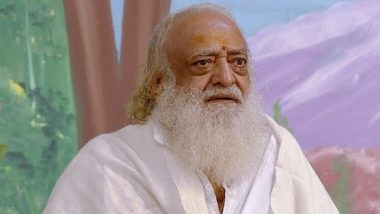Jodhpur, Jul 15: In a first for any high court, the Rajasthan High Court has asked lawyers to abandon the colonial practise of addressing its judges as 'My Lord' or 'Your Lordship', saying they are comfortable with simply being called 'sir'.
The high court took the decision to dispense with the archaic address for its judges Sunday in a full court meeting of all its judges from its two benches in Jodhpur and Jaipur.
“To honour the mandate of equality enshrined in the Constitution of India, the Full Court, in its meeting dated July 14, 2019, has unanimously resolved to request the counsel and those, who appear before the court, to desist from addressing Honourable judges as 'My Lord' or 'Your Lordship', said a notification issued Monday by the registrar general of the high court.
The notification requested lawyers and litigants to address judges simply as "sir" or "srimanji".
The resolution to abandon the practice of judges being addressed as 'My Lord' was passed in the first Full Court meeting chaired by new Chief Justice S Ravindra Bhatt.
More than a decade ago, the Supreme Court too had ruled that addressing judges as 'My Lord' or 'Your Lordship' was not mandatory and that the judges could simply be addressed as 'sir' as a mark of respect to them.
Following a lively debate between the bench and the bar over 15 years ago as to whether lawyers should abandon the colonial form of address like 'My Lord', judges had opined that they were comfortable with being called 'sir'.
As a culmination of this debate, the Bar Council of India had passed a resolution in April 2006, doing away with the practice of addressing judges as 'My Lord' or 'Your Lordship'.
The council had notified a new rule, calling upon lawyers to address judges in the Supreme Court and high courts as 'Your Honour' or 'Hon'ble Court' or plainly as 'sir'.
But it is for the first time that any high court has taken a decision and passed a resolution, advising lawyers to abandon the colonial and archaic practice of addressing higher courts' judges as 'My Lord'.
In fact, the use of archaic and colonial terms and expression characterises the language of the lawsuits and petitions to court as well. For example, any petition filed in the apex court or high courts opens with words like: "The applicant most humbly showeth that..."
And it ends with expressions like: "It is most respectfully prayed that this hon'ble court may kindly be pleased to grant the relief..."
The Rajasthan High Court Advocates' Association president Ranjeet Joshi hailed the resolution, saying it is a good initiative. “For this decision, the chief justice and other judges of the high-court deserved appreciation,” said Joshi. He also has appealed to all advocates to address judges in the high court simply as “sir” or “shrimanji” and maintain the decorum of the court.













 Quickly
Quickly





















